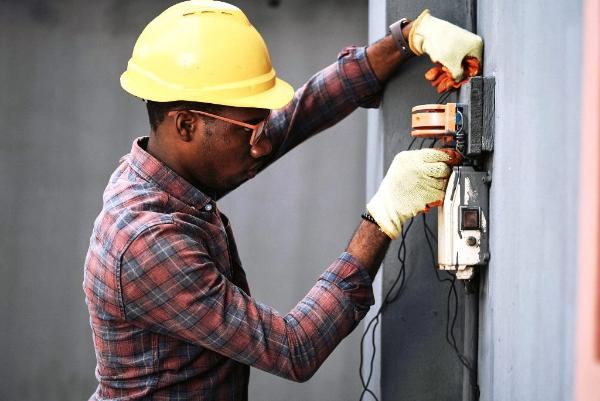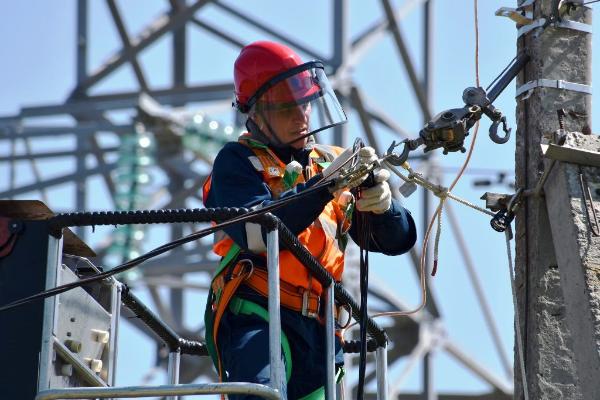Working as an electrician can be a very lucrative job. You can be paid well to do what you love, and many people long to have that kind of career. However, there are certain rules and regulations that you must follow to ensure your safety as well as the safety of those around you. There are also some things that you need to know about the trade to be successful. Following are some important pieces of advice for electricians.

Know Your Limitations
There are some instances when it is better to call in a professional electrician than trying to do the job yourself. This especially holds if your task involves working with high voltage or other complicated wiring issues that may be dangerous for an amateur to try and handle by themselves. If you arent sure about how to complete a project, ask questions before starting so that you can be certain of what you need to accomplish. You may also consult professionals from Ask The Electrical Guy if you have any other questions or doubts about the work. It is well worth the time and money to ensure that you are doing the job properly. Just make sure that you only operate the equipment if you know how they work and have received training on their safe use and operation.
Always Wear The Proper Safety Gear
This is probably the most important rule that you need to remember. Electricians are constantly working with live wires and other electrical equipment, which can be extremely dangerous if you are not properly protected. Make sure that you always wear gloves, a hard hat, and eye protection when working on electrical projects. Many service providers don’t provide safety gear, so make sure to check the company before joining them. You can also choose your hardhat and gloves from any personal shop nearby. Just make sure that the gloves aren’t too thick, as you will need to be able to grip wires and tools.
Be Aware Of Your Surroundings
It is important to always be aware of your surroundings when working with electricity. Keep in mind the location of other workers, as well as any potential hazards, and take steps to avoid them. For example, never work on a live wire if there is another worker within reach. If you are working in an area where there is a risk of someone coming into contact with your wires, be sure to use caution tape or other warning devices to alert them to the danger. If you are working in an area where there is a risk of someone accidentally touching the wires, make sure that all of the power is turned off before you start work.
Follow The Codes
As an electrician, it is important to always follow the codes and regulations that have been set forth by your state or municipality. These rules are in place for your safety, as well as the safety of others. They include guidelines for things like the type of wiring that can be used, the maximum amperage that is allowed, and the type of equipment that is permitted. Ignoring these codes can result in fines or an accident and you could be held responsible for any injuries that occur to other people due to your negligence. Also, make sure that you don’t work on any project without getting all of the required inspections.
Stay Up To Date On Changes In The Trade
You need to make sure that you keep up with important changes in the industry, such as new electrical codes and hiring practices. There are many ways to keep abreast of these updates and it is a good idea to take advantage of all of them. An excellent place to begin is by signing up for certification courses or association membership programs. You may also consider subscribing to an online blog, reading industry magazines and newsletters, and attending seminars and events in your local area. By staying up to date on the latest changes will ensure that you get the most current information on changes within the trade and will help you stay ahead of your competition.
Use The Right Equipment For The Project
Having the right equipment for any given project can make your work easier and safer. You need to be sure that you have the proper tools and supplies to install any type of electrical system. For example, if you need to run wire through the walls of your house, you will need a drill and saw as well as an assortment of wall anchors for making holes in sheetrock. If you are working with PVC piping instead of metal, make sure that it is rated for use in household electrical systems. You can find a variety of tools and supplies at your local hardware store, or you may want to consider purchasing them online.

By following these important tips, you can increase your safety while performing electrical work. These suggestions aren’t just for novices either – even the most experienced electrician could stand to benefit from following these rules daily. Just remember, to always put safety first and to always double-check your work before leaving the job site.













 The Steps to Take if You Want Your Own Outdoor Kitchen
The Steps to Take if You Want Your Own Outdoor Kitchen